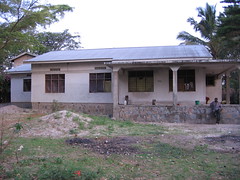confused...
power has been on today. First time in a couple months we have seen daytime power. We are all worried about what this means.
One of the hardest parts of living here is learning to be a good parent while being a good missionary. Lately, I feel like I have been better at being a missionary than a parent. Yesterday was the first free day our family has had in a couple months, so we decided to have a Josiah day: Ferry boat ride, ice cream, all the fun stuff, all day, until my evening language class. So we pack up, and...
a visitor arrives at the house.
When a visitor arrives, you host them. You have no idea how long they have travelled to arrive, so you can't run out the door. Visitors are always more important than anything else.
Especially when the visitor, a dear man, has just learned that he has AIDS. I struggled to console the man in Swahili, shared tea, fruit, and stories with this man, and offered a meager prayer. Language sometimes isn't the biggest barrier. Sometimes no words are adequate.
Then, our friend Urbano arrived. We offered hospitality to him, but also chose to preserve at least half the day for Josiah. So we cut our visit short, helped him on his way back home, then off to the ferry boat.
While we weren't the best missionaries, acting in completely illogical ways (who would take the ferry boat just to reboard for the return trip), Josiah's excitement was impossible to contain.
The words of Randy Harris ring in our ears: there is only one savior, and he is not me. Hard to remember that sometimes.
My language teacher said something similar in class: "Yani, do you expect to learn a language that took two thousand years to form in two weeks time?" So, we are learning patience, balancing priorities, and trying to keep things in perspective. And enjoying seeing our son skip down the road to catch the ferry boat to nowhere.
power has been on today. First time in a couple months we have seen daytime power. We are all worried about what this means.
One of the hardest parts of living here is learning to be a good parent while being a good missionary. Lately, I feel like I have been better at being a missionary than a parent. Yesterday was the first free day our family has had in a couple months, so we decided to have a Josiah day: Ferry boat ride, ice cream, all the fun stuff, all day, until my evening language class. So we pack up, and...
a visitor arrives at the house.
When a visitor arrives, you host them. You have no idea how long they have travelled to arrive, so you can't run out the door. Visitors are always more important than anything else.
Especially when the visitor, a dear man, has just learned that he has AIDS. I struggled to console the man in Swahili, shared tea, fruit, and stories with this man, and offered a meager prayer. Language sometimes isn't the biggest barrier. Sometimes no words are adequate.
Then, our friend Urbano arrived. We offered hospitality to him, but also chose to preserve at least half the day for Josiah. So we cut our visit short, helped him on his way back home, then off to the ferry boat.
While we weren't the best missionaries, acting in completely illogical ways (who would take the ferry boat just to reboard for the return trip), Josiah's excitement was impossible to contain.
The words of Randy Harris ring in our ears: there is only one savior, and he is not me. Hard to remember that sometimes.
My language teacher said something similar in class: "Yani, do you expect to learn a language that took two thousand years to form in two weeks time?" So, we are learning patience, balancing priorities, and trying to keep things in perspective. And enjoying seeing our son skip down the road to catch the ferry boat to nowhere.



